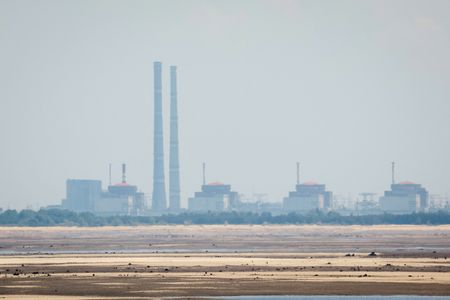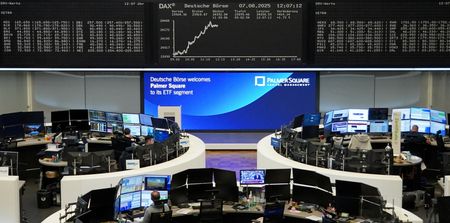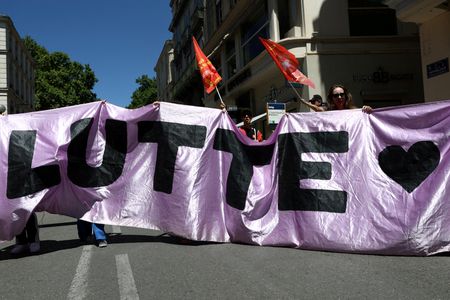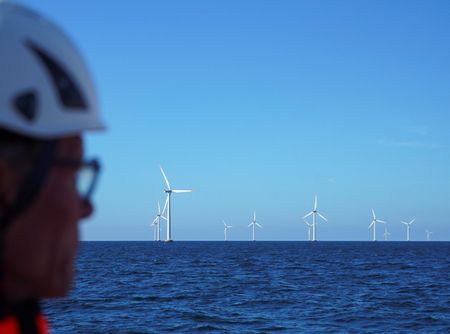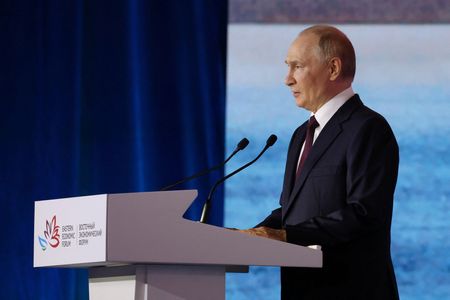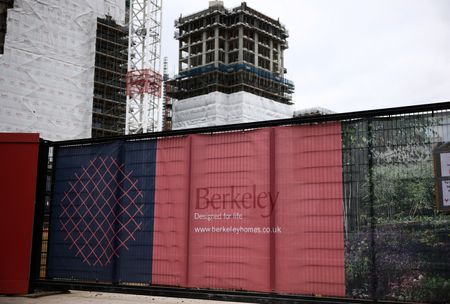MOSCOW (Reuters) -The head of the United Nations nuclear watchdog said intense military activity had prompted the cancellation on Wednesday of a rotation of a mission by monitors at the Russian-held Zaporizhzhia nuclear power plant in southern Ukraine.
Rafael Grossi, director general of the International Atomic Energy Agency, did not apportion blame for the disruption, but said his agency’s staff should not be subjected to such a situation.
Russia and Ukraine blamed each other for the cancelled rotation.
“I deeply regret today’s cancellation of the carefully prepared and agreed rotation of our staff, who are carrying out vital work in very challenging circumstances to help prevent a nuclear accident during the military conflict,” Grossi said in a statement on the IAEA website.
“It is completely unacceptable that the safety of our staff is jeopardized in this way.”
Grossi said he would consult with both sides to ensure monitors could proceed with their mission and uphold nuclear safety.
Russia accused Ukraine of engaging in “provocations” to disrupt the rotation.
The Russia-installed governor of the region, Yevgeny Balitsky, had accused Ukraine of launching a drone attack on Enerhodar, the city nearest the plant, where many of its employees live. He said drone debris had landed within 300 metres (984.25 ft) of one of the plant’s reactors.
A spokesperson for Ukraine’s Foreign Ministry, Heorhii Tykhyi, said Russia had deliberately disrupted the rotation, a tactic he said had been used before.
“(Russia) gives vague signals of its supposed readiness to guarantee safe passage, but an hour before the start of the rotation it opens fire or starts hostilities in the area,” Tykhyi said.
Russia seized the Zaporizhzhia plant, Europe’s largest with six reactors, in the early weeks of Russia’s February 2022 invasion of Ukraine.
Each side has since routinely accused the other of staging attacks around the plant and risking a nuclear accident.
The IAEA has stationed monitors at the station since September 2022 and maintains a presence at all of Ukraine’s nuclear facilities.
(Reporting by Reuters; Writing by Lucy Papachristou; Editing by Christina Fincher, Ron Popeski and Richard Chang)

